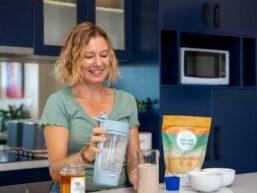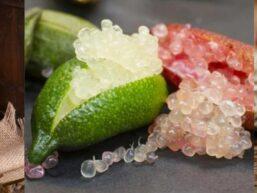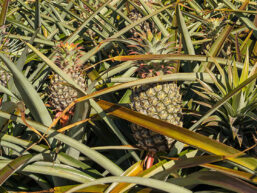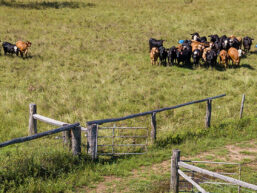Related Posts
Farming Pretty – Women in Farming
20 May 2021 / Agriculture
The traditional weathered image of an Australian farmer could soon be replaced by that of a young, determined, educated woman using innovation to boost profitability and diversity in the agriculture industry, all the while improving the health of their families and the communities in which they farm.
Currently, women make up 42 per cent of the international agriculture workforce, and 47 per cent of the global fisheries labour force according to the UN Food and Agriculture Organization (FAO). These industrious, resilient women produce more than half of the world’s food, despite being less than half of the labour force.
Two separate Capricorn Coast businesses launched during COVID- 19, Clancy from Sunbirds Farm (microgreens), and Lana from IndeeStone Flower Farm, are two of the most down to earth, tenacious, hardworking women you will ever meet. It’s not hard to see why interest in these two businesswomen and their exceptional products has skyrocketed. The two connected over their kids at the local primary school and as well as their booming agricultural businesses. Both women identified niches in the local market and have since capitalised on the growing appetite for local sustainable produce.
Clancy and Lana are equally passionate about sustainable farming and often share a compost bin and worm farm, priding themselves on being as organic as possible, using no pesticides or chemicals. It has been trial and error since the beginning for these two women, having to overcome bushfires, pandemics and hailstorms all while juggling the demands of parenting.
Why did you choose to stray from conventional crops?
Clancy: “Mainly because we don’t live on a lot of land and because I love Microgreens.”
Lana: “I choose to stray from conventional farming, to be able to farm chemical free and to focus on soil health as I believe it goes hand and hand with plant and human health. “
What are some of the challenges that you have had to face so far?
Clancy: “Most challenging has been time management and juggling parenting and running the house while building the farm.”
Lana: “The weather and the elements. I am the only flower farmer in this region and with most flower farming located down south in colder climates, I haven’t had anyone local as a mentor so it has been trial and error from day one.”
What does success mean to you?
Clancy: “Success to me means contentment in what I am doing and feeling connected to my community. Experiencing the joy people get from eating my Microgreens has probably been the most soul fulfilling. It has given me a sense of purpose, which in turn makes me feel successful.”
Lana: “Being able to give back to my community and spread joy.”
What would you say to other aspiring women wanting to get into the agriculture industry?
Clancy: “Go for it. Give anything you desire a go; it really creates a positive ripple effect.”
Lana: “Do your research and educate yourself and then not be scared to actually have a go. It is important to have a good support network. It is a joint effort between me and my husband. I find women seem to have intuition and connection with the land and particular care in nurturing the plants the earth provides, I think it what sets us apart.”
What motivates you to continue?
Clancy: “The joy. It makes me happy.”
Lana: “I gave my friend some seeds to plant in her garden and now she is hooked, I love sharing my love for flower farming and seeing others spread joy through flowers.”
In a decade, what do you hope the agriculture industry looks like?
Clancy: “Environmental sustainability. I would like to see more education on our natural ecosystems and how to preserve them. Moving forward in our capability to sustain food supplies without comprising the Earth. If we could shift our perception of entitlement of the land to connection and preserving. With technological advancements, we can farm differently while using less space and water. Move more towards sustainable farming practices like Biodynamic, biodegradable packaging only and commercial composting facilities.”
Lana: “I would really like to see less chemicals and more people growing their own fresh produce for their families and exchanging their excess with their neighbors and friends.”
You can purchase Lana’s bunches of flowers at IGA Yeppoon and her edible flowers and bunches at Farnborough General Store.










